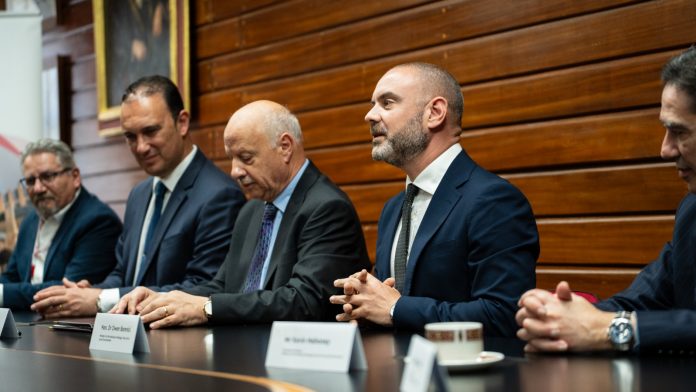
The NotaryPedia Project has been officially launched as a national initiative that combines advanced technology with the preservation of Malta’s historical and legal heritage. This innovative project is using Artificial Intelligence (AI) and knowledge graph technologies to make the Maltese notarial archives more accessible and interactive for present and future generations.
The NotaryPedia platform will make these documents, many of which are written in notarial Latin and with contemporary orthography, accessible to researchers, historians, journalists, legal professionals and the general public. The platform will be used to develop intelligent tools for automatic transcription and knowledge extraction, which will facilitate research and allow users to discover hidden connections in the content.
During the launch, Minister for National Heritage, the Arts and Local Government Owen Bonnici said, “The NotaryPedia Project will place Malta at the forefront of the digitisation and semantic exploration of historical archives, and will serve as a model for other countries with similar documentary heritage.” He explained how this initiative focuses on notarial manuscripts dating back to the fifteenth century, and which include documents such as wills, marriage contracts, property transfers and dowries, among others.
Minister for Education, Sports, Youth, Research and Innovation Clifton Grima, emphasised the importance of this project. “This is another project that will give a boost not only to interested researchers, but also to scholars on the subject. We are continuing to make use of Artificial Intelligence for the good of society, with the invaluable contribution of the University of Malta.”
Dr Joan Abela, President of the Notarial Archives Foundation, remarked, “NotaryPedia is a long-awaited project that will not only preserve a national heritage of historical importance, but will also make it accessible in innovative ways. It is a proud moment for a team committed to the field of paleography, cataloguing and digitization.”
Dr Charlie Abela, who leads the project on behalf of the Department of Artificial Intelligence, added: “This is a clear example of how technology can serve cultural good. By using AI, we are making history alive and accessible to everyone.”
The Rector of the University of Malta, Prof. Alfred J. Vella, explained, “The University’s involvement in this initiative demonstrates how our research and academic knowledge are bearing real fruit for society. It is an honour that our expertise is being spread across projects with such a wide impact.”
The project is the result of a three-year collaboration between the Department of Artificial Intelligence within the Faculty of ICT at the University of Malta, the Ministry for National Heritage, the Arts and Local Government, and the Notarial Archives Foundation.
Photos: MAHAL/MEYR
![]()







